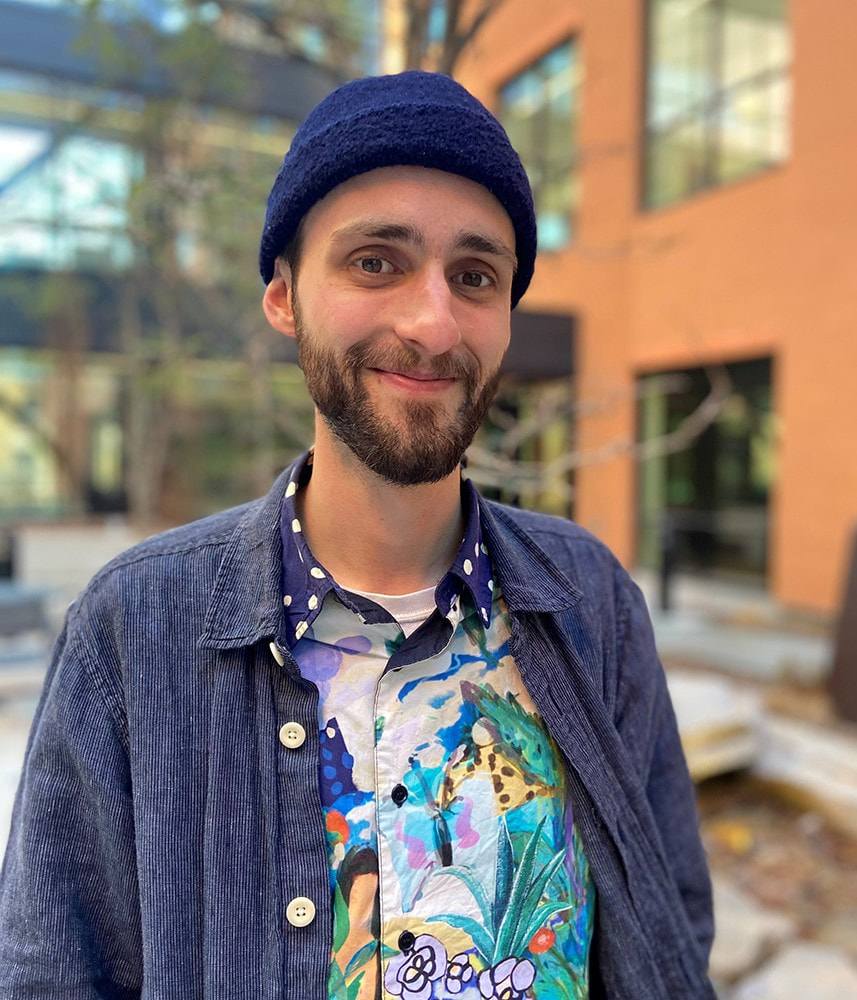Congratulations to Carter Haskell Davis on being selected as the Student Spotlight Award winner for February 2022!
The purpose of this award is to highlight students who are doing important work in the CBS community whether for research, clinical, and/or volunteer-humanitarian efforts.
This is a way to highlight their achievements, let the ACBS community know important work students are doing, and possibly provide a platform for mentoring, collaboration, professional development, and conversations around highlighted areas.
Learn more about Carter Haskell Davis:
Background of CBS Research/Clinical/Volunteering efforts/achievements:
I was first introduced to CBS in 2013, when I volunteered to teach art classes at a psychiatric hospital where there happened to be very active ACT research and implementation going on. It changed the course of my life professionally and personally. I was working in the fine arts field at the time, and decided to switch careers and eventually pursue a PhD in Clinical Psychology. This was because I saw the potential of CBS to help so many people who were suffering deeply. It also expanded my own worldview in a way that has brought me so much joy. Professionally, I worked full time in an ACT for psychosis lab with Brandon Gaudiano at Brown University for two years. Brandon taught me how to be a scientist. I then entered grad school where I have been conducting research for four years with Michael Levin and Michael Twohig in the ACT Research Group at Utah State University. My research focuses on widespread dissemination of ACT through accessible self-help means in order to fill critical caps in public health. For instance, my dissertation project is a clinical trial of antidepressants versus a storytelling-based ACT intervention for individuals who are not currently working with a mental health professional. I also work as a therapist in an ACT speciality clinic where I treat both community members as well as Division I student-athletes at Utah State.
Autobiography:
I grew up in New York City and began my career as a visual artist, including working in several fine arts printing presses. A pivotal experience volunteering to teach art at a psychiatric hospital marked a turning point in my path, inspiring a transition into the field of clinical psychology. I am currently a fourth-year PhD student in Clinical Psychology at Utah State University. In addition to my academic and clinical pursuits, I enjoy painting, and I occasionally lead meditation groups in my local community.
Future goals:
I hope to become a clinical psychologist who both provides treatment and conducts research so that CBS can touch even more areas where there is suffering.
Relevant publications:
Davis, C.H., Gaudiano, B.A., McHugh, L., & Levin, M.E. (2021). Integrating storytelling into the science and practice of contextual behavioral science. Journal of Contextual Behavioral Science, 20, 155-162.
https://doi.org/10.1016/j.jcbs.2021.04.004
Davis, C.H., Krafft, J., Hicks, E.T., & Levin, M.E. (2021). The role of psychological inflexibility and perspective taking in anti-racism and anti-sexism. Personality and Individual Differences, 175.
https://doi.org/10.1016/j.paid.2021.110724
Gaudiano, B.A., Davis, C.H., Miller, I.W., & Uebelacker, L.A. (2020). Pilot randomized controlled trial of a video self-help intervention for depression based on acceptance and commitment therapy: Feasibility and acceptability. Clinical Psychology and Psychotherapy, 27(3), 396-407. https://doi.org/10.1002/cpp.2436
